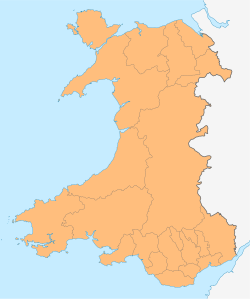| Cyfoeth Naturiol Cymru | |
| | |
 | |
| Welsh Government Sponsored Body overview | |
|---|---|
| Formed | 1 April 2013 |
| Preceding agencies | |
| Jurisdiction | Wales |
| Headquarters | Tŷ Cambria, Newport Road, Cardiff 51°29′04″N3°10′02″W / 51.4845°N 3.1671°W |
| Employees | 1,900 |
| Annual budget | £180 million GBP |
| Minister responsible |
|
| Welsh Government Sponsored Body executives |
|
| Website | naturalresources |
| Map | |
 Natural Resources Wales is responsible for environmental protection & regulation and the maintenance of natural resources throughout Wales. | |
Natural Resources Wales (Welsh : Cyfoeth Naturiol Cymru) is a Welsh Government sponsored body, which became operational from 1 April 2013, when it took over the management of the natural resources of Wales. [2] It was formed from a merger of the Countryside Council for Wales, Environment Agency Wales, and the Forestry Commission Wales, and also assumed some other roles formerly performed by the Welsh Government.
Contents
- Roles and responsibilities
- Purpose
- Remit
- Regulatory responsibilities
- Statutory duties within the Environment (Wales) Act 2016
- State of Natural Resources Report
- Area Statements
- Statutory duties within the Well-being of Future Generations (Wales) Act 2015
- Public Service Boards
- Well-being Statement
- Past and present officers
- Merger debate
- References
- External links